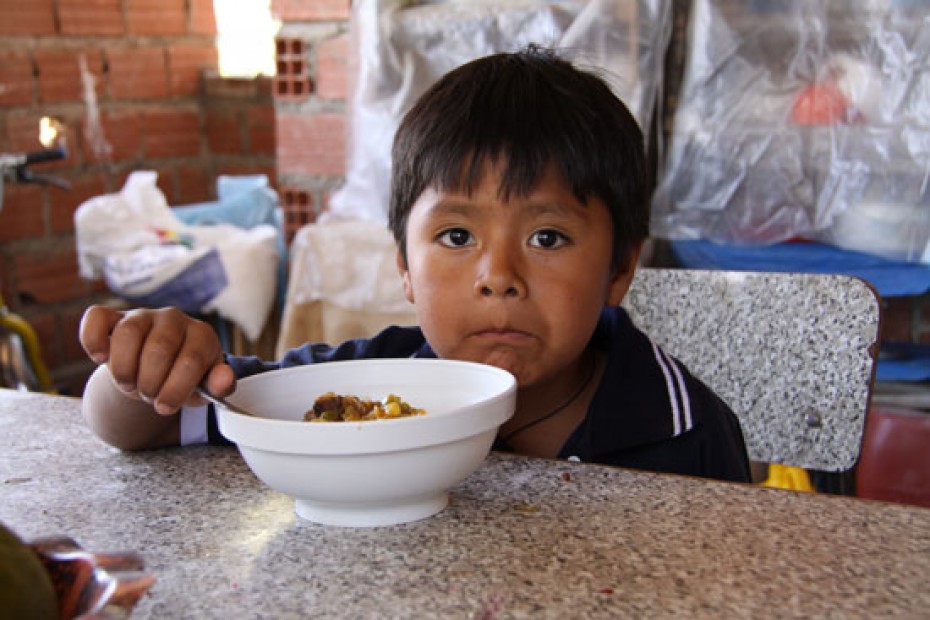The Emerging Metrics of Doing Good

Despite conventional wisdom, the accurate headline is that investments to fight abject global poverty are showing incredible returns. While that’s good news in itself, the subhead indicates that we have a new ally in doing good: independent, empirically tested outcomes for charitable work.
Continue Reading ›Who Cares About the Poor?

If I cared, I’d be more like Bono or Mother Teresa or even Wess Stafford — someone with influence and name recognition, someone with a story. If I cared, I’d do more, right? If I cared, I’d dedicate my life to serving the poor — as their champion, as their savior.
Continue Reading ›Bailout Plan
“It’s extraordinary to me that the United States can find $700 billion to save Wall Street and the entire G8 can’t find $25 billion dollars to save 25,000 children who die every day from preventable diseases.” –Bono.
I don’t mean to make light of the current economic crisis in the United States, but there’s a part of me that wonders if we don’t deserve this.
As a country, we have been getting fat and lazy while two thirds of the world struggles just to stay alive. Not all of us, mind you, but collectively — as a country — we’re complaining not because we can’t survive but because our luxuries cost us more than we want to spend.
We want cheap gas and “affordable” four-bedroom homes. We want 200 channels on television and to be able to go out to eat two or three times a week.
As Americans, many of us believe we deserve those things. There’s a sense of entitlement. Meanwhile, on the other side of this tiny little planet of ours, someone is praying, pleading to God for a slice of bread.
So our government is working on a bailout plan. How can we maintain the “American way of life” without suffering the consequences of our decisions? A loan. We’ll loan ourselves money and turn a blind eye to the root causes of greed and selfishness.
We do that so well, don’t we? We attack problems by trying to change the circumstances, instead of battling the root causes. I know I’ve done it in my own life, so this is as much an indictment on me as it is on anyone else.
Then I start to think about the poor.
What is the bailout plan for that family living on less than $2 a day in a developing country? The family who struggles not with wants for luxury but needs for survival. Who will bail them out?
The answer, oddly enough, is us. Yes, the same “us” that’s struggling in the midst of this economic downturn. When our economy is bad, it trickles down to the poorest of the poor.
Higher food costs and fuel prices mean their $2 a day doesn’t go nearly as far. We have to look beyond ourselves, now more than ever, to be the church God intended us to be.
The Church is God’s bailout plan for the poor.
I’m not saying we should throw money at poverty and turn a blind eye to its root causes. I understand why Bono is frustrated over the lack of funds, I really do. But money alone won’t stop poverty.
It goes deeper than that. Besides, I think the Church can do better than any government. We understand the spiritual implications that despair and hopelessness cause. And no one can meet those needs better than the Church. If we’ll just be the Church.
This is a time to pray. Not just for the economic crisis in our country, but also for the ones hit hardest — the poor. And, there’s something else we can do: give more.
That’s right . . . more. I know it sounds odd, but what if, instead of hording our money during this time of economic struggle, we decided to be more giving? Wouldn’t that be something?
Imagine the headlines: GIVING TO THE POOR IS UP — EVEN AS STOCKS DECLINE. At the very least, we can’t afford to cut back on our giving. The poor simply cannot survive if we do.
I don’t know what giving more means to you. It could be sponsoring a child. It could be giving to a fund that feeds the hungry.
Maybe it means going on a mission trip and getting your hands dirty. But this is the time to do it. Now. Not tomorrow. Not to change circumstances . . . but to attack the roots.


